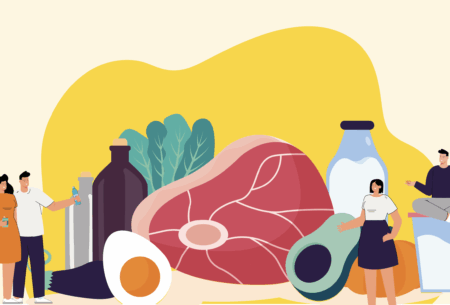For IBS awareness month, I’d like to unpick the nuanced ways in which planning big celebrations (such as a wedding!) can lead to the onset, or exacerbation of, unpleasant gut symptoms. Whilst this article has been written with weddings in mind (either your own, or as a guest), the experience of event planning and gut symptoms can occur from anything to birthdays, to Eid, to Christmas.
As a gut health dietitian, I have compiled together a range of tips below to help navigate nervous system relaxation, and a gentle approach to nutrition in this time. This list is not exhaustive, and it is not personalised to your needs. If you resonate with any of the content of this article, visit your GP and request a referral to local gastroenterology teams where you should be able to access a gastro-specialist dietitian. Of course, we have a team of gut health dietitians at The Gut Health Clinic who can support you.








 The pressure of the event
The pressure of the event
 Body image and weddings
Body image and weddings
 Crafting is a great way to relax your nervous system. Confetti can be made from hole-punched colourful cards and paper, you could draw/craft ideas for the day, organise a walk to pick some fallen leaves/flowers to make corsages/confetti, make bunting from old bedding, incorporate some crafting activities on sten/fox parties, and after the wedding, use photos from the day as a springboard to craft your own wedding art. If you are interested in crafting but unsure where to start, lean on friends and family members who can help get you started.
Crafting is a great way to relax your nervous system. Confetti can be made from hole-punched colourful cards and paper, you could draw/craft ideas for the day, organise a walk to pick some fallen leaves/flowers to make corsages/confetti, make bunting from old bedding, incorporate some crafting activities on sten/fox parties, and after the wedding, use photos from the day as a springboard to craft your own wedding art. If you are interested in crafting but unsure where to start, lean on friends and family members who can help get you started. Breath work, meditations, mindfulness and gut-directed hypnotherapy are all well researched for stress management.
Breath work, meditations, mindfulness and gut-directed hypnotherapy are all well researched for stress management. Make movement work for you. It might be challenging to stick to the usual routine with the added time constraints of wedding planning, you may feel you “ought” to be doing more exercise in this time. If you feel more tired than usual, and certainly if you are experiencing bloating or loose stools, higher intensity exercise can worsen symptoms. Generally for gut symptoms movement like yoga, pilates, and walking can all be relieving.
Make movement work for you. It might be challenging to stick to the usual routine with the added time constraints of wedding planning, you may feel you “ought” to be doing more exercise in this time. If you feel more tired than usual, and certainly if you are experiencing bloating or loose stools, higher intensity exercise can worsen symptoms. Generally for gut symptoms movement like yoga, pilates, and walking can all be relieving. sleep. Suddenly the mental load of life is doubled during this period, and particularly if you are working extra hours to help with costs of weddings, aim to make sleep a priority (even over exercise). We know that poor sleep and tiredness can alter our immune health, as well as appetite and digestion, which can all impact our gut symptoms. If you are struggling with sleep, try apps like Calm and Headspace for wind-downs before sleep.
sleep. Suddenly the mental load of life is doubled during this period, and particularly if you are working extra hours to help with costs of weddings, aim to make sleep a priority (even over exercise). We know that poor sleep and tiredness can alter our immune health, as well as appetite and digestion, which can all impact our gut symptoms. If you are struggling with sleep, try apps like Calm and Headspace for wind-downs before sleep. Be open with friends, family and colleagues about your feelings of stress and being time-strapped. This is a period of time where you might feel more distracted or perhaps even less motivated at work, and this might be a period of time where you require more support and help than you can give. Know that it all comes around, and there will be times in the future where friends and family need the same from you. There are many ways to show your gratitude for other’s understanding and support.
Be open with friends, family and colleagues about your feelings of stress and being time-strapped. This is a period of time where you might feel more distracted or perhaps even less motivated at work, and this might be a period of time where you require more support and help than you can give. Know that it all comes around, and there will be times in the future where friends and family need the same from you. There are many ways to show your gratitude for other’s understanding and support.

 Adapt your eating patterns to changes in your appetite. Appetite can be very easily altered by stress, if you notice your appetite is reduced for more than 1 day then consider adapting to a little and often approach to meals and snacks. Include planned snacks, and aim to eat something small every 3-4hrs on days with lower appetite.
Adapt your eating patterns to changes in your appetite. Appetite can be very easily altered by stress, if you notice your appetite is reduced for more than 1 day then consider adapting to a little and often approach to meals and snacks. Include planned snacks, and aim to eat something small every 3-4hrs on days with lower appetite.




